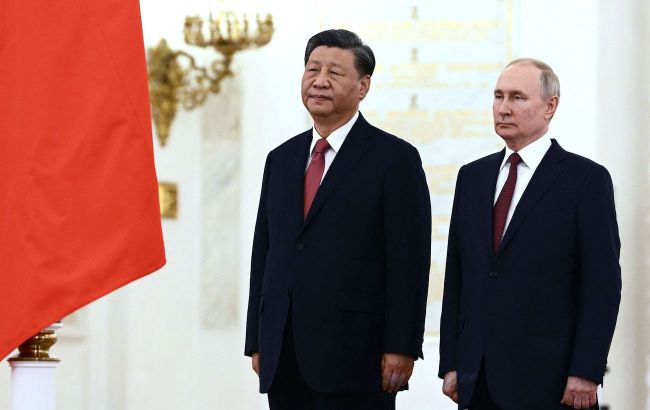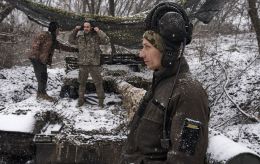ISW experts: Kremlin continues to build coalition in opposition to West
 Chinese leader Xi Jinping and Russian dictator Vladimir Putin (photo: Getty Images)
Chinese leader Xi Jinping and Russian dictator Vladimir Putin (photo: Getty Images)
Russia continues to try to build a coalition in opposition to the West by developing bilateral relations with Iran, North Korea, and China, according to the Institute for the Study of War (ISW).
The experts of the institute cited several recent facts to support their conclusions.
Yesterday, on March 19, in Moscow, Russian Deputy Foreign Minister Andrei Rudenko met with China's Special Representative for Korean Peninsula Affairs Liu Xiaomin to discuss the situation on the Korean Peninsula.
The sides accused the US and its allies of threatening the military situation in Northeast Asia and warned the US against spreading block thinking in the style of the Cold War.
Russia, however, is also seeking to strengthen its relations with North Korea. It has received ballistic missiles and artillery shells from North Korea in exchange for potential technological cooperation and other unspecified support, causing concern in Seoul.
Additionally, Russia's ambassador to China, Igor Morgulov, met with the head of the Chinese news agency Xinhua, Fu Hua, to discuss bilateral cooperation in the media sphere.
On the same day, March 19, Iranian President Ebrahim Raisi held a telephone conversation with Russian dictator Vladimir Putin to discuss bilateral cooperation. Raisi confirmed his readiness to help Russia stabilize the South Caucasus region in light of the current events in Armenia and Azerbaijan.
Russia's desire to strengthen political and diplomatic bilateral relations with Beijing, as well as its use of bilateral relations with Iran and North Korea for military advantage, is a form of block thinking, in which Liu and Rudenko accused the US and its allies, according to ISW.
The Kremlin is using the war against Ukraine to maintain bilateral relations and create a coalition of states to balance the West, which has long been a central aspect of Russia's foreign policy, experts emphasized.
Putin plans to travel to China in May for talks with Chinese leader Xi Jinping.
Politico, citing sources, reported that China is trying to convince Europe to allow Russia to sit at the table for future peace talks, which may take place in Switzerland.
The G7 called on Iran not to transfer ballistic missiles to Russia for use in its war against Ukraine, warning of measures against Tehran if it does so.

